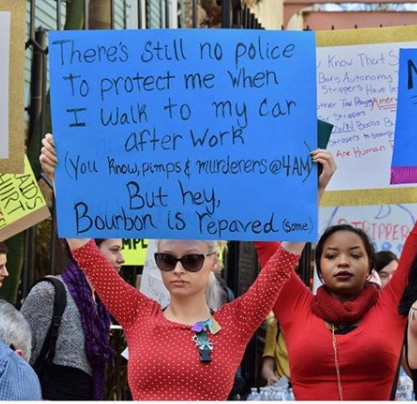Both Transphobic and Whorephobic: The Murder of Dora Oezer

On July 2nd, 24-year-old trans sex worker Dora Oezer was murdered by one of her clients. On July 12th, there was a protest against transphobic violence Istanbul, while similar protests were held in Berlin and Eskisehir. Meanwhile, the Turkish sex workers’ rights organization Red Umbrella Sexual Health and Human Rights Association held a protest and read a press release in Ankara. On the 19th, Dora’s murder and the murder of Swedish sex worker Petite Jasmine inspired an international wave of protests against violence against sex workers in thirty six cities across the globe outside of Turkish and Swedish embassies. Kemal Iffetsiz Asyu Ayrikotu, chair of the Red Umbrella Sexual Health and Human Rights Association, answered some questions about Dora’s murder and conditions for trans sex workers in Turkey for Tits and Sass.
Caty Simon: Do you mind giving us some background on how the laws operate in Turkey re: sex work and what it’s like for sex workers there?
Kemal Iffetsiz Asyu Ayrikotu: Sex work is not illegal in Turkey, at least in theory. The only group of people who are registered are female sex workers who work at brothels which are regulated by a special Charter called “The Charter to Combat Prostitution.” Based on this legislation, several brothels operate in different cities of Turkey. The overall number of brothels and registered female sex workers who work at these brothels has changed in the last 10 years, as many brothels have been closed down. Currently, around 1500 registered sex workers work at these brothels, while the number of brothels has decreased to around 35 – 40. Both cisgender female sex workers and transsexual women can work at brothels as they both hold female ID cards.
The important issue is unregistered sex workers. These workers face a challenge coming from The Charter to Combat Prostitution, Turkish Penal Code and some laws that has nothing to do with sex work; such as the law on misdemeanors and the law on traffic. The charter gives authority to governorships, the higher local administration which governs cities in Turkey, to carry out investigations on people who do sex work in their apartments, bars, clubs, etc. and to close down these spaces for certain periods of time. The governorships, commissions assigned to combat prostitution under the governorships, and the police are the implementing bodies of the Charter.
The Turkish Penal Code is a big barrier for unregistered sex workers, as several phrases in this law target sex workers, such as the clauses on “obscenity”, “exhibitionism”, “providing a space for prostitution”, “soliciting”, “acting as mediators”, and “human trafficking.” All of these clauses are actively used against male, female, and trans sex workers, who end up with their apartments closed down, imprisoned, paying exorbitant fines, etc.
The police are some of the main perpetrators of human rights violations against sex workers, especially street sex workers. They make use of misdemeanor laws to harass sex workers on the streets by charging them with arbitrary fines every night. This is perceived as a strategy to deter people from sex work. Yet, when a sex worker is fined, they are more likely to go back to the street to re-earn the money which was taken away from her/him. Also, the law on traffic is used against those sex workers who drive down the streets to find clients, and they also end up charged with arbitrary fines.



